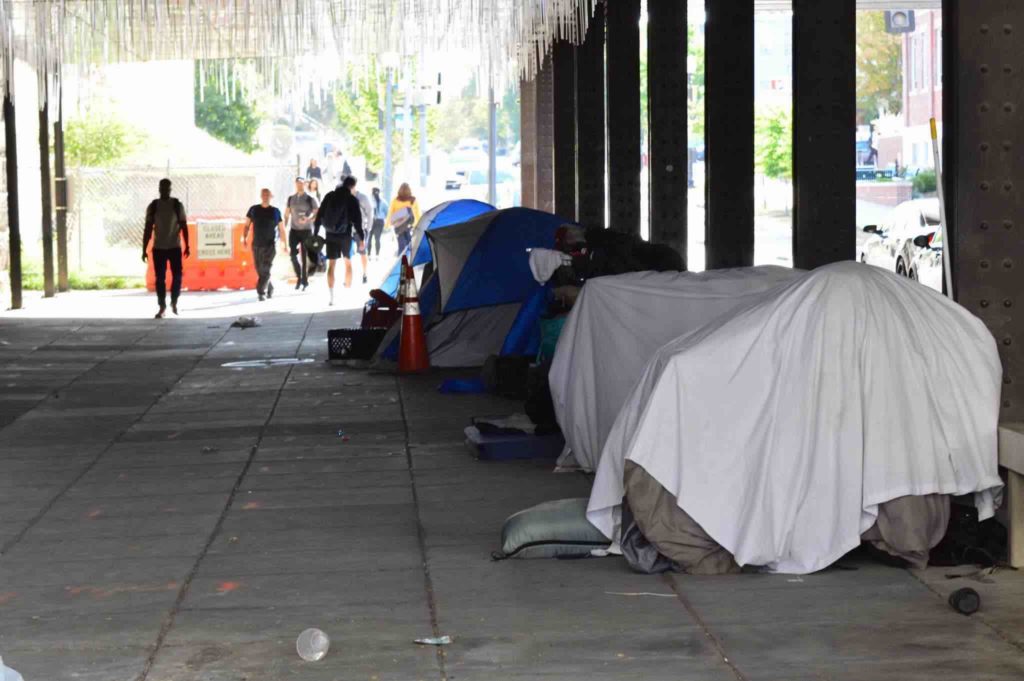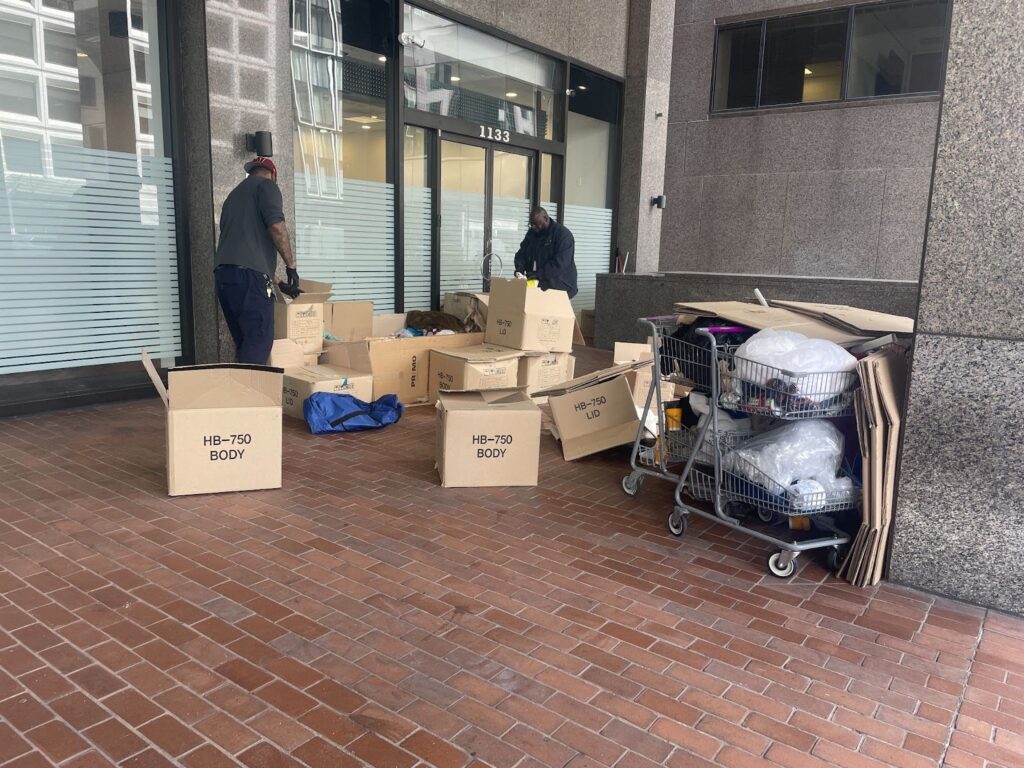My name is Reginald Black. I wish to share publicly my concerns about neighbors who are living in NoMa, and the conditions and sentiments they have to endure.
In August of 2019, the NoMa Business Improvement District published an “open letter” about the many people living in tents on K, L, and M Streets. We haven’t actually heard members of this community specifically respond to the letter, They’re still stuck there, they’re still disconnected from services, and now they’re being criminalized.
The BID said they were responding to “complaints” from neighbors. Most of these neighbors are not natives to the District of Columbia. I believe that their complaints are misguided and are not offering solutions.
The only “solution” mentioned was creating “pedestrian safe-passage zones,” So far, there has been no legislation proposed or changes made to the city’s encampment protocol. With such a vague policy, implementation will no doubt be a misguided process.
I grew up in an underserved community in D.C. I’m a lifelong resident. I attended its schools, I worshipped in its churches, and I voted for its leaders. I also spent months on a porch, a boiler room, outside unprotected, under blankets, in a coat, or in a cardboard box. I also spent time in shelters. This makes me an expert on homelessness and a proponent for long-lasting solutions that will promote health and wellness in the community overall.
The Interagency Council on Homelessness mandates by D.C. law that people with lived experience advise the council on the best strategies to move forward the mission of ending homelessness in D.C. The ICH’s strategic plan calls for comprehensive engagement with consumers of homeless services, and I support that stance wholeheartedly.
I am appalled that people that are suffering on our streets are scheduled to be evicted. If housed residents have a problem with cleanliness, maybe their minds need to be cleaned first.
I want to pose a question to the more than 100,000 people who pass through the neighborhood: Could you spare one dollar? What is your answer? “No?” Then expect unfavorable conditions.
How many of you are opening your homes to those who are hungry, who are thirsty, and who are naked? I ask you to demonstrate concern for the least of thee.
I recommend that these residents get more involved in their community. I further recommend that businesses in the area hire people from the encampment community. I ask you to join me in advocating for them to have the right to living in a favorable setting—a fully furnished apartment like yours, a three- to four-bedroom house like yours. You are wrong to assume these people are here by choice. All homeless people came from a former home setting. Listen to them, they want to be free.
My advocacy is to correct the problems that exist in this community. You are misguided to assume us advocates don’t fight for solutions.
It’s really about our judgments of one another. Well-intentioned racism and bigotry won’t solve encampments. In an affluent neighborhood like yours, people should not have to live on the sidewalk. Call out landlords and businesses that break the law. Go after big business in the same way that you targeted my peers. I advise you to look up ABC News special segment “D.C./Divided City” that aired in 1989. Listen to yourself in the previous epidemic. How much has changed? People experiencing poverty have always had to fight for a seat at the table. Your one-sided dialogue does not give proper input to those who are also neighbors.
If you are interested in recommending a solution, I would love to hear it ([email protected]). I am committed to my peers experiencing homelessness, and I will admit that I am biased towards them. They don’t deserve to be harassed because they don’t have an apartment or a house like you.
I look forward to having a better dialogue than what has taken place up until now.
Reginald Black is an artist and vendor with Street Sense Media, a formerly homeless native Washingtonian, and an appointed member of the D.C. Interagency Council on Homelessness.








